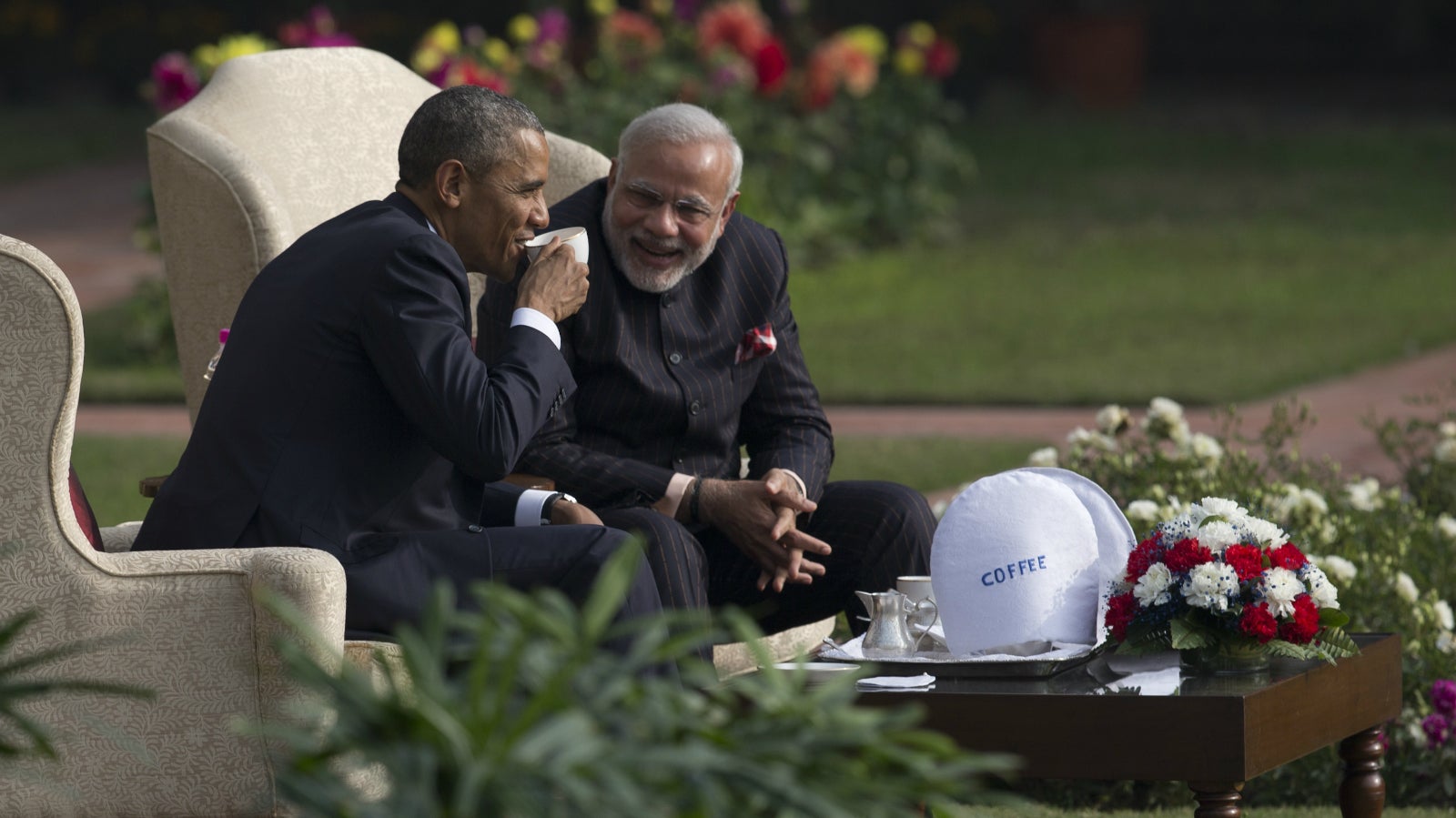Can Narendra Modi and Barack Obama clear the misgivings and re-energise the nuclear deal?
One of the biggest outcomes of the bromance between Indian prime minister Narendra Modi and US president Barack Obama during the latter’s Republic Day visit to India in January 2015 was an emphatic reiteration of commitment to make the Indo-US civilian nuclear deal work.


One of the biggest outcomes of the bromance between Indian prime minister Narendra Modi and US president Barack Obama during the latter’s Republic Day visit to India in January 2015 was an emphatic reiteration of commitment to make the Indo-US civilian nuclear deal work.
However, the agreement has remained stuck in a morass of paranoia and mistrust.
Modi and Obama will have a lot to talk about later this week when they meet at the Nuclear Security Summit in Washington.
Yet, nuclear experts in Washington and New Delhi aren’t holding their breath for a dramatic breakthrough.
Despite the general agreement on the contentious liability and insurance issues, companies such as Westinghouse Electric and General Electric are unlikely to begin building reactors on Indian soil anytime soon.
“A lot of time was wasted and both (India and the US) are to blame for it,” says Vijay K. Sazawal, principal at the Washington DC-based International Atomic Energy Consulting. Sazawal is a former nuclear advisor to the US-India Business Council, with first-hand experience of negotiating the deal between the Manmohan Singh and George W Bush administrations.
He says “cultural difference” on both sides stalled the deal from being put in place.
“Delhi did not appreciate the amount of legal scrutiny and review” commercial deals have to undergo in the US, while Washington misjudged the political ramifications the deal would have in India.
Even if a contract was signed “today”, says Sazawal, India would be unable to clear construction because land has not yet been acquired by the various state governments in India and transferred to the Nuclear Power Corporation of India Limited (NPCIL), which will operate the plants.
Rajeswari Pillai Rajagopalan, senior fellow and head of the Nuclear and Space Policy Initiative at the Delhi-based Observer Research Foundation, says Modi “understands the needs to operationalise the deal and make progress to get the commercial deals going.”
While Delhi has shown its readiness to play by international rules when it comes to securing liability and insurance for nuclear power providers, global companies are still not convinced they have the right protection.
Rajagopalan says, “Modi has not been able to change the attitude of foreign players’ resistance towards doing business in India,” while archaic laws, coupled with a dysfunctional parliament, do not provide comfort.
“Ultimately there needs to be a business deal,” says an India-US foreign policy expert in Washington DC who didn’t want to be named. The question is, can Westinghouse’s nuclear plants be profitable. Besides, there’s also the cost concerns of India’s department of atomic energy and the Central Electricity Board, which set prices.
The Washington expert adds that Westinghouse is optimistic about the proposed government of India-backed, Rs1,500-crore insurance pool. Under the Civil Liability for Nuclear Damage Act, insurance is mandatory and the money will come largely from state-backed insurance companies. The mechanism gives power plant operators the “right to recourse” and protects them financially in case of accidents.
Other issues to keep a watch on are the all-important state elections scheduled in the next few months and beyond. In Tamil Nadu, for instance, the Kudankulam reactor has suffered delays because of local political and grassroots opposition. The first reactor finally came on line after many fits and starts, but the delay cost NPCIL about $100 million.
However, experts say they do not believe land acquisition for projects will be an electoral issue in Tamil Nadu as the Jayalalithaa government has renegotiated a better deal with the Centre, giving the state a higher proportion of Kudankulam’s output than originally negotiated.
More worrying is the shutting down of one of the two units of Gujarat’s Kakrapar Atomic Power Station following leakage of heavy water. This wasn’t good news for nuclear power proponents. The government, too, hasn’t been forthcoming with details of the accident.
Experts point out “historical reluctance by the department of atomic energy and the Nuclear Power Corporation of India Limited to make details transparent. India has, however, promised to upgrade its nuclear regulatory regime, but is yet to submit a bill in Parliament in this regard.
The Kakrapur incident re-emphasises the need to bring in that bill.
President Obama is keen to tick the civilian nuclear deal off as a success before he leaves office. The US state department as well as the Indian prime minister’s office are working hard to put some life into the deal.
“Can the formalities be completed by September 2016? I have no idea,” says Sazawal.
We welcome your comments at [email protected].